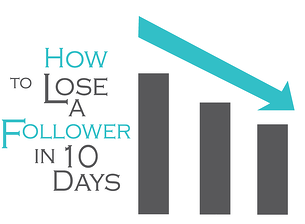Social media engagement is a part of almost every company’s marketing arsenal these days. Most marketing professionals recognize the importance of dialoguing with customers on Facebook or Google+, but there are some lines that should never be crossed when dealing with social media users. 
Take to heart the following social media don’ts or learn the painful lessons that other companies have:
- Don’t ignore controversies: Paralysis is a common reaction to a brewing crisis, but in the business world it only makes your situation worse. A lack of response to a serious criticism can appear like your company doesn’t know what to do, doesn’t have a defendable position, or doesn’t care.
- Don’t get down in the mud: There is a whole class of online users who criticize everything. These strident voices can be easy targets sometimes, but your company should avoid engaging if at all possible. You are only lending credence to their arguments by arguing with them. If there is a legitimate criticism it will be picked up by cooler heads whom you can carry on a reasonable discussion with.
- Don’t make things personal: It can be difficult to watch a particularly combative critic attempt to damage all the achievements your company has accomplished, but lobbing insults that are particularly directed at an individual is one of the most important social media don’ts. A single ugly comment can ricochet around the world and create a significantly bigger public relations nightmare.
- Don’t use Twitter for combative discussions: The vast majority of arguments are not going to be resolved with 140 character responses. Use more robust platforms where you can clearly detail what you mean and where it is more difficult to misinterpret a response.
- Don’t badmouth the competition: While it can be appealing to constantly trash your competitors, it gets tiresome for your audience. Other users are more willing to believe your criticisms if they are balanced with meaningful analysis or generous compliments.
- Don’t police your communities: Some organizations are terrified of criticism which can lead to totalitarian policing of online communities. Facebook or Google+ users are on these platforms to learn more about products and companies, so having honest discussions is considerably more valuable to most users than an unmitigated love fest.
- Don’t purchase followers: If your organization gauges social media success by the number of followers, you may be tempted to buff up those numbers with bribes or outright payments to companies who specialize in this sort of thing. This may work out for a quarter or two, but eventually your organization is going to realize it is paying for something that has no value.
- Don’t plagiarize: Credibility is one of the most important currencies on the web; once you lose it may take years to rebuild it. Copying from other sites sets you up for bad publicity (out of the billions on the internet, someone will notice)
- Don’t have a presence on every social site: In an ideal world, this would not be a social media no-no, but unless you have millions of marketing dollars at your disposal it is more important to choose one or two platforms that are of particular importance to your organization and invest heavily.
- Don’t gorge and purge: It is common to become highly active on a single site, especially when you initially set up your pages, and then leave it without much activity for many weeks or months. Any customer base you might have built up will drift away if you fail to engage users consistently.
One good social media campaign can help put a company on the map, but a truly awful one can produce bad press that takes months or years to clean up.





